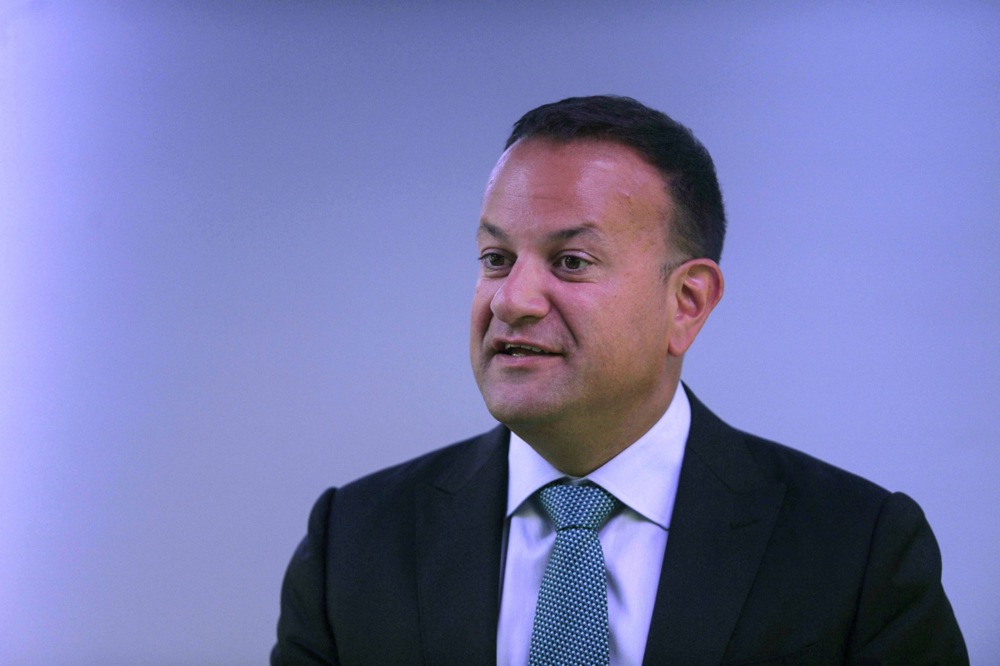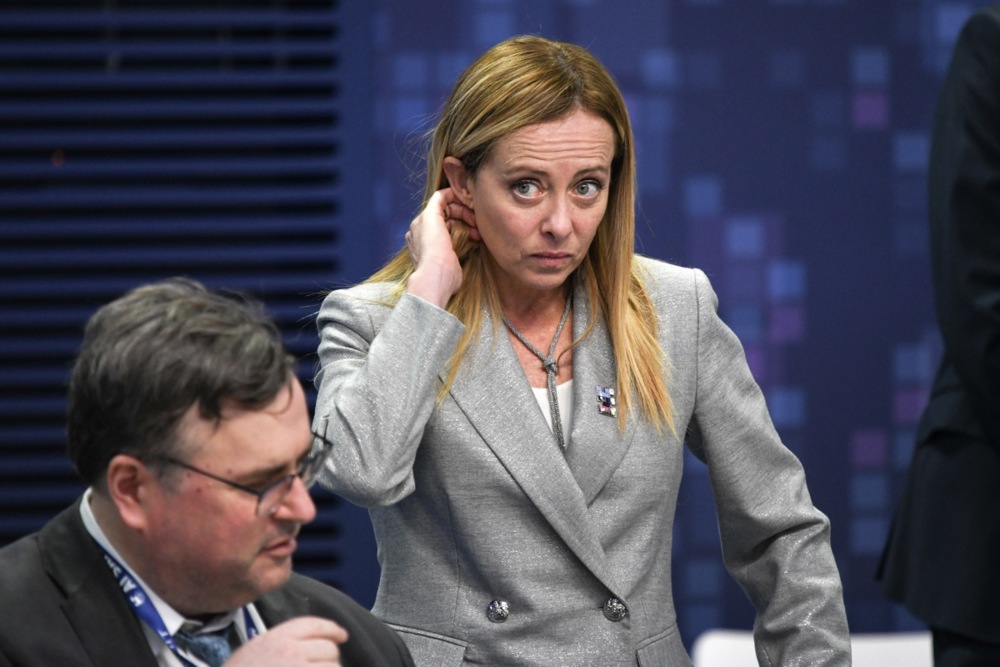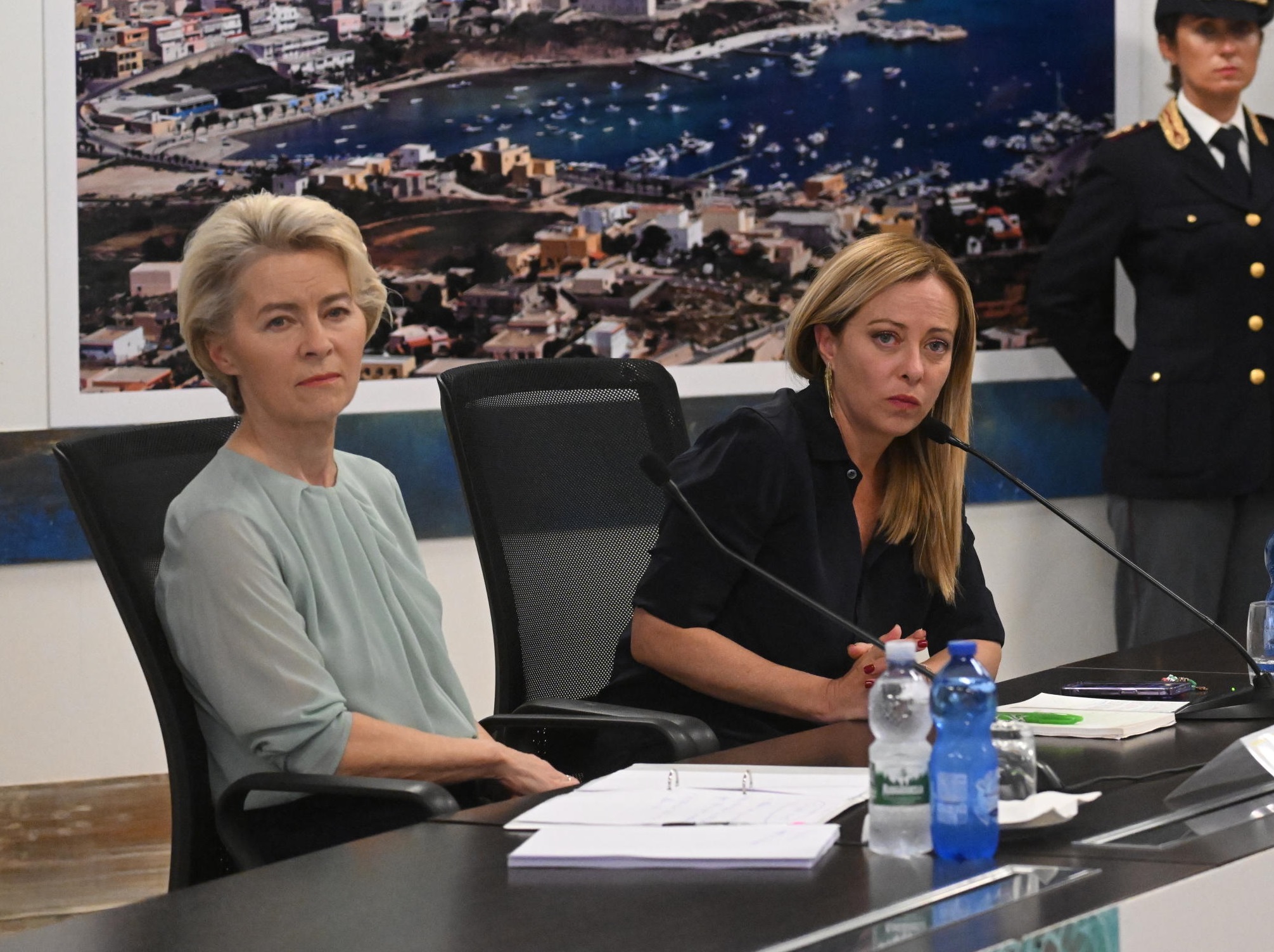Italy’s Prime Minister Giorgia Meloni does not have enough parliamentary support to push through the constitutional changes required to introduce a directly elected leader, it is claimed.
Meloni is staking huge political capital on her proposed constitutional reform, though support is just short of the required majority in parliament.
She has won her cabinet’s approval to change Italy’s constitution to feature a directly-elected Prime Minister serving a five-year term, in place of one elected by MPs.
But the proposal is unlikely to secure the necessary two-thirds support in each of Italy’s parliamentary Houses, analysts have told Brussels Signal.
“Meloni most likely does not have enough support in Parliament to get approval,” said Erin May Tanchico, an Italian journalist in Salerno.
Meloni’s coalition lacks a two-thirds majority in each part of the legislature, by 39 seats in the Chamber of Deputies and 20 in the Senate.
She is expected to try to make up the difference by luring support from smaller parties.
Italia Viva, a minor centrist party led by former prime minister Matteo Renzi, has indicated it may support the proposal. It has nine deputies and seven senators.
But even with Italia Viva, in the Senate she falls short. “Provided she strikes a deal with Renzi, she can rely on 123 Senators out of 200. She needs 134,” said Federico Bonomi, a legislative advisor in the Senate.
In addition, “She probably won’t get much help from the Gruppo Misto, Autonomie or life Senators,” he predicted.
The Gruppo Misto represents minor parties. Autonomie is a group of centrist and centre-left regionalist independents. Italy also has five Senators for life: two scientists, an architect, a Holocaust survivor and former prime minister Mario Monti.
If Meloni loses in the legislature, she can bring the proposal to a popular referendum, probably after 2024’s European Parliament elections. Strong voter support in those elections will test the waters for a referendum.
She may not face markedly better fortunes in a referendum vote, however.
“For the referendum, yes I agree there will be one, but I don’t think there is much chance the Meloni Government can get a majority on it,” said Dr Valerio Alfonso Bruno, a research fellow in Milan’s Polidemos Centre for the Study of Democracy and Political Change.
Matteo Legrenzi, an international relations professor at Ca’ Foscari University of Venice, said that could mean Meloni’s “most likely outcome is not achieving parliamentary majority, [after which] the Government [would be] reluctant to go ahead with a referendum”.
The blow to government authority “would be very high” if it loses.
While changing Italy’s Constitution is seen as partly a move to distract voters from Meloni’s lack of progress on immigration and inflation, she also seems to believe Italy’s short-lived governments lie behind its stagnant economy.
Italy had nine prime ministers and 12 governments from 2002 to 2022, compared with four governments for France and three for Germany.
In those years, Italy’s economy grew by 4 per cent, against 20 per cent for both France and Germany.
A proposal to strengthen Italy’s political leadership is also seen as financially cheap and could win support from cultural conservatives.
Even if Meloni does manage to win backing to change the Constitution, Italy’s constitutional court could still reject her proposal.
Since a directly elected prime minister risks not having a parliamentary majority, she proposes giving an elected one an automatic 55 per cent majority in the Parliament.
That could conflict with the Constitution’s principle of proportionality, the court may argue.
In Italy’s current electoral system, adopted in 2017, two-thirds of parliamentarians in each House are elected by party-list proportional representation, while the remaining third are chosen by first-past-the-post voting.
Wagering her political capital on changing Italy’s constitution is a tempting move for Meloni.
It lets her try to boost her support among disenchanted conservative voters, but also costs less than new spending programmes–especially when Italy’s economy is not growing, and interest on its large public debt is increasing.
Cost-of-living pressures will also likely challenge the scale of her support for Ukraine.
Precedents for constitutional reform are also not promising for Meloni.
Both Silvio Berlusconi and Matteo Renzi previously submitted amendments to strengthen the executive – and both failed.





